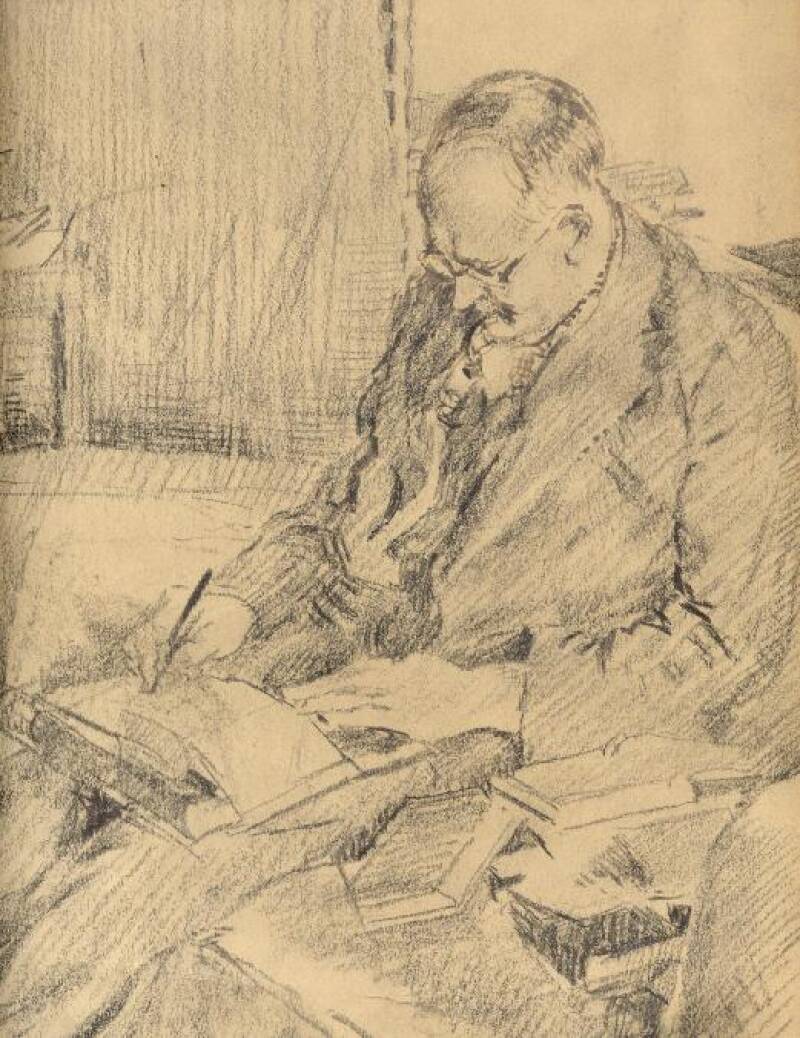Early life
After his schooling at Charterhouse John Crow went on to read medicine at Guy's, but never practised it. From Guy's he won an exhibition to Worcester College Oxford and took his B.A. there. He also became joint editor of Isis, with Peter Fleming. He was a learned lay theologian and in the late 1920s and early 30s put in some time at the Wellington Mission in Walworth. For 12 years he pursued a journalistic career as a boxing correspondent writing for "Boxing" and several American boxing journals and acting as sports editor of a London Sunday newspaper.

John Crow (unattributed)
Academic career
At the outbreak of World War II he was declared unfit for military service. He first of all joined the staff of Wellington College, and then, in 1945, went to King's College, London, beginning his academic career at the age of 41 as a temporary lecturer. He published little and it took him 17 years to be promoted to Reader. However John Crow was a man of wide ranging erudition and a distinguished scholar in the field of Elizabethan and Jacobean drama.
According to the obituary in the Times, his real memorial lies in the acknowledgments of fellow scholars rather than in his own published output. His circle of friends included such eminent textual critics as A.W. Pollard, W.W. Greg and Fredson Bowers. Professor G. Wilson Knight writing to the Times after his death recalled: "His kindly companionship, conversation and wit had qualities entirely his own. Never surely was weight of learning accompanied by a more infectious humour." His services were much in demand as a book reviewer, particularly for the Times Literary Supplement.
Bequest of his library
From 1968-69 John Crow was Professor of English at the University of Pittsburgh; he died on 29 October 1969, just before his 65th birthday. The papers were bequeathed to Molly Mahood, Professor of English at the University of Kent, but due to a problem with probate, Dr. Mahood withdrew as a legatee. On Crow's death, Dr. Mahood, with the support of Edward Wilson of Emmanuel College, purchased the collection and with great generosity passed it on to the University Library.
Management of the bequest
In the early 1970s the space and resources available to the Library were very limited, and the task of first sifting and sorting this vast collection, and then accessioning, cataloguing and processing it was a formidable one. It was not feasible to preserve the collection as an entirely separate and self-contained entity. The Library's own bookstock was then, in 1970, still relatively meagre, and much of the Crow material went straight to enrich holdings on the open shelves, particularly in the field of English literature. At the same time, during the process of sorting, various special collection categories were recognised, and the material grouped accordingly.





